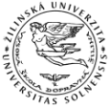Keynotes
Multi-class queueing Applications in Automated Warehousing Systems
Abstract
In this talk we discuss the use of multi-class queueing models for the design of automated warehousing systems, including sequential multi-segment zone-picking systems and compact picking systems. To estimate key performance statistics such as throughput capacity and recirculation, we propose various techniques, including product-form approximations, mean-value analysis and (dis-)aggregation.
Curriculum Vitae
Ivo Adan is a Full Professor in the sections Operations, Planning, Accounting and Control (department of Industrial Engineering & Innovation Sciences) and Dynamics and Control (department of Mechanical Engineering) at Eindhoven University of Technology (TU/e) and holds the Manufacturing Networks chair. His expertise and tuition areas include probability theory / statistics, operations research, manufacturing networks, stochastic operations research and queueing models. His current research interests are in the area of modeling, design and control of manufacturing systems, warehousing systems and transportation systems, and more specifically, in the mathematical analysis of multi-dimensional structured Markov processes and queueing models, providing an indispensable tool in the above mentioned area.
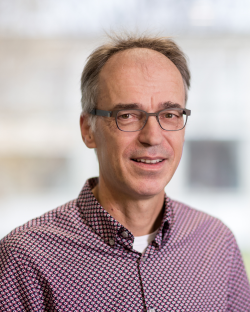
Technical University of Eindhoven
Department of Industrial Engineering & Innovation Sciences
Eindhoven, The Netherlands
Advanced Dynamic Optimization of (Bio)chemical Processes under Parametric Uncertainty
Abstract
to be added
Curriculum Vitae
Prof. Jan F.M. Van Impe obtained a master's degree in electrical and mechanical engineering from the University of Gent in 1988, and a doctorate in applied sciences from the KU Leuven in 1993. Immediately thereafter he founded the BioTeC (Chemical and Biochemical Process Technology and Control) research group. In the period 2005-2011 he has served as Departmental Head, while during the period 2006-2015 he was a visiting professor at the UAntwerpen. Currently he is coordinating the European Master of Science in Food Science, Technology and Business (BIFTEC), co-funded by the Erasmus+ Programme of the European Union.
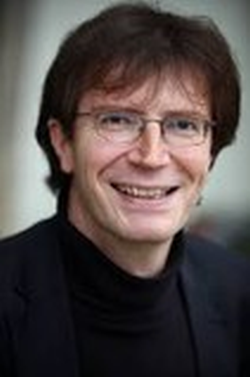
University of Leuven Research Centre
Ghent, Belgium
Invited Speakers
Giant Impacts: Understanding Uranus' Spin (and More) with SPH Simulations
Abstract
The solar system used to be a much more violent place, with planets colliding in giant impacts that shaped many of the phenomena we see today. Smoothed-particle hydrodynamics (SPH) simulations are the common way to study these dramatic events, in which the planets or moons are modelled with millions of particles that are evolved under gravity and material pressure forces. One planetary mystery that can almost certainly be explained by a giant impact is the question of how the planet Uranus came to spin on its side, with an obliquity of 98° and its major moons orbiting in the same tilted plane. Having run the first high-resolution simulations of the Uranus impact, we have studied the possible consequences in exciting new detail, finding that, as well as the spin, the collision might also help explain the planet's extremely cold temperatures and its strangely tilted and off-centre magnetic field. I will also discuss the new open-source code SWIFT, which is being developed to run these challenging simulations with the efficiency and scaling required for ever more particles and higher resolutions. Finally, I'll touch on some of the other specific examples we are investigating, such as the formation of Saturn's surprisingly young rings.
Curriculum Vitae
Jacob Kegerreis is a third-year PhD researcher at the Institute for Computational Cosmology at Durham University. His current focus is on modelling planetary collisions with high resolution SPH simulations, ranging from the giant impact that likely knocked Uranus onto its side and the possible formation of Saturn's rings from colliding moons, to the more general effects of giant impacts on a planet's atmosphere. He is also part of the team developing SWIFT, a new hydrodynamics code for astrophysical and cosmological applications, with novel (in this context) parallelisation strategies. His MPhys was also completed at Durham University, with a thesis on simulating the tenuous lunar exosphere, for which he was awarded the D.A.Wright prize for outstanding performance and the Bill Bryson prize for communication in science. Alongside his research, Jacob is involved with a wide range of outreach projects to engage the public and schoolchildren with science and astronomy: from the larger scale of radio segments, including Science Friday and the Galaxy Makers exhibit at the Royal Society Summer Exhibition, to local engagement with planetarium shows at schools and building a programmable 8-bit computer on breadboards.
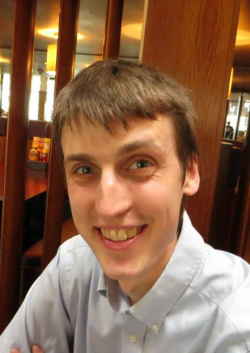
Durham University
Department of Physics
Institute for Computational Cosmology
Durham, United Kingdom
Simulation and modelling of a flooding disaster at Prague
Abstract
The city of Prague is situated along the Vltava river (Moldau). This river is a typical rain river. After heavy rainfall in the Black forest in Germany the water in the river can raise for several meters. In 2002 there was heavy flooding at Prague. There were some casualties and heavy damage to the infrastructure and buildings of Prague. Some measurements were take such as removable dams, broadening the riverbed, a cascade of dams stream upwards with artificial lakes to buffer the water. The measurements can only be tested by simulation studies and models. We will discuss and present some of them. To educate civilians and first responders in the city as fire workers, police officers and medical staff a special MOOC (Massive Open Online Course) has been designed. Part of the lessons including simulations of evacuation will be presented.
Curriculum Vitae
Leon Rothkrantz studied Mathematics at the University of Utrecht. After his PhD defense at the University of Amsterdam, he completed a second study in Psychology at the University of Leiden. In 1980 he was appointed at the Technical University of Delft. His research topics was Artificial Intelligence with a focus on modelling human brain and multimodal communication. In 1999 he was appointed as Associate Professor at TUDelft and headed the group of Knowledge Based Systems. In 2008 he was appointed as Professor in Smart sensor systems at The Netherlands Defense Academy. In 2015 he was awarded with a degree of Doctor honoris cause from the Czech Technical University in Prague and since 2013 he is visiting Professor at that University at the Faculty of Transportation Sciences.
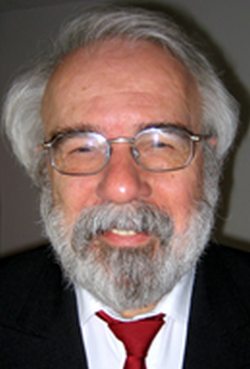
Czech Technical University
Faculty of Transportation Sciences
Prague, Czech Republic



